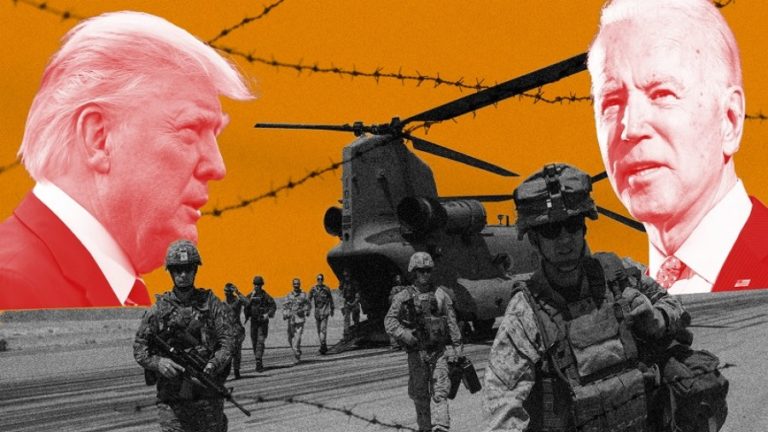The Pentagon’s “Pacific Bellicosity” Is Threatening Both Russia and China
The Russian military claimed that the U.S.’ guided-missile cruiser Chancellorsville suddenly changed course early Friday morning while on a patrol in the East China Sea and almost collided with the Admiral Vinogradov destroyer that was passing through these waters at the same time.
The U.S. denied this accusation and instead said that it was the Russian vessel that was behaving unprofessionally and putting the lives of everyone involved at risk, though it should be noted that this certainly wasn’t the first time that American forces have been accused of such recklessness.
Actually, there have been several such incidents every year since the 2014 Ukrainian crisis and consequent territorial dispute of Crimea which led to a revival of Cold War tensions between the two great powers, with most of these near-misses occurring in the Baltic Sea, Black Sea, and Syria.
This is the first time that such an event happened in the East China Sea between the two rivals and proves that the Pentagon’s Pacific bellicosity of recent years is finally starting to endanger Russia just as much it’s been endangering China this entire time.
The U.S.’ so-called “freedom of navigation patrols” pass through the South China Sea and seem designed to provoke a military response from Beijing, one which Washington could then expectedly exploit to advance its demonization campaign against China.
Given what’s known about previous near-misses between the Chinese and American navies, one can assume that the U.S. was the party at fault in the latest incident with Russia because of its established pattern of aggressive behavior. Furthermore, it can’t be ruled out that the recent event might have been timed to coincide with the ongoing St. Petersburg International Economic Forum (SPIEF).
At SPIEF, China and Russia are discussing ways to intensify their cooperation on the Belt and Road Initiative (BRI), which represents the most realistic opportunity to transform international relations away from the fading American-centric unipolarity and towards the more equitable emerging multipolar world order.
The U.S. is very upset that Russia and China moved much closer to one another after EuroMaidan, which interestingly also coincided with the Pentagon’s provocative activity in the South China Sea. The Russian-Chinese partnership isn’t aimed against any third party, but many in the American strategic, political, and media communities are convinced that it’s secretly intended to undermine the U.S., hence the hysterical reaction that they’re having to it.
That said, there’s no denying that Russia and China see eye-to-eye on practically every global issue of significance, and they’ve just found another commonality between them when it comes to the U.S.’ reckless military action in the Pacific.
Russian forces are now endangered by this irresponsible activity just like their Chinese counterparts have been in recent years already, which could add a renewed impetus to these two great powers’ military cooperation with one another, especially in the naval sphere.
Not only that, but Russia is already paying more attention to the Pacific as part of the geopolitical re-balancing act that it’s been engaged in for half a decade already in reaction to the West’s sanctions against it, so it’s only natural for Moscow to take this latest incident very seriously and use it as the opportunity to cooperate even more closely with Beijing than ever before.
This conceivable outcome would add further credence to the theory that the U.S.’ aggression abroad is actually self-defeating and counterproductive because it ultimately lays the basis for equal and opposite reactions that eventually undermine its stated aims.
It’s enough to remember how the U.S.’ hybrid war aggression in Ukraine and conventional naval aggression in the South China Sea brought Russia and China closer together and fulfilled the nightmare scenario that the late former national security adviser and visionary geopolitical theorist Zbigniew Brzezinski warned about in his 1997 seminal work about “The Grand Chessboard.”
The solution as always would be for the U.S. to embrace win-win cooperation with all and reject the zero-sum schemes that got it to this point, but it doesn’t seem like it’s learned its lesson just yet, especially judging by the latest incident.
By Andrew Korybko
Source: CGTN







